“These Stories Needed to Be Told”: Steve McQueen and the Golden Age of Resistance
Rainbow Milk author Paul Mendez sits down with the Academy Award-winning film-maker and artist to discuss his new BBC series, Small Axe
By Paul Mendez 01/10/2020 ESQUIRE MAGAZINE
On a stifling evening in August, Steve McQueen arrives for dinner at a brasserie in Amsterdam’s Museum Quarter looking perfectly cool and in control. He offers me his elbow— the Covid-friendly way of giving dap — before shrugging off his enormous rucksack and shuffling onto the cushioned bench opposite me at our outside table. He’s wearing a purple T-shirt and grey basketball shorts.
“Hi, I’m Steve. How are you? Sorry I’m late.”
If I’m star-struck, and I am, then I have good reason. This is Steve McQueen, a figure who seems to deal solely in landmarks. In 1999, he won the Turner Prize, the most prestigious award a British artist can receive, for an ICA exhibition harking back to silent Hollywood. While continuing to make artworks, he seamlessly turned his attention to feature films, winning the 2008 Cannes Film Festival Camera d’Or for Hunger, a spare, masterful debut about the 1981 Northern Irish Republican hunger strikes. His ascent to the top was complete when he won the Academy Award for Best Motion Picture of the Year in 2014 — the first Black director or producer to do so — for 12 Years a Slave, based on the harrowing real experiences of Solomon Northup, a free African-American man who was kidnapped and sold into slavery in 1840s Louisiana. This year, the Tate Modern has displayed a retrospective of his work made post-Turner Prize, and an immensely powerful and ambitious photographic portrait series, of tens of thousands of London’s school children, is on display at Tate Britain until January. He was awarded the OBE and CBE before being knighted at the start of this year, and has proved himself — in his unparalleled 30-year career — to be one of the most vital, original, uncompromising, inspirational, challenging and brilliant creative voices of our time. No wonder my palms are sweaty.
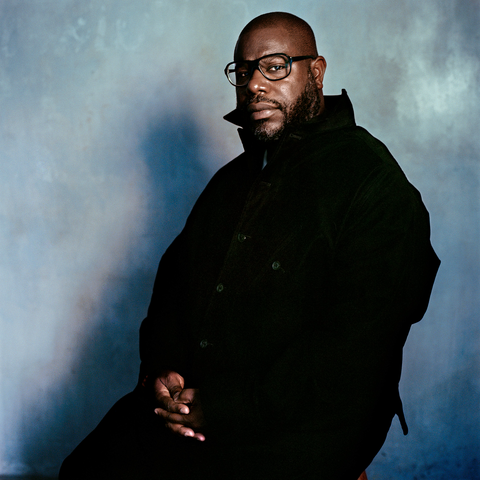
He is immediately jovial and chatty, asking about my flight, where I’m staying, how things are in London (he’s lived in Amsterdam for 20 years with his partner, the Dutch cultural critic Bianca Stigter; they have two children). But we have more pressing things to talk about. A new Steve McQueen film project is always an important moment, but on this occasion, in both scope and scale, it is monumental.
Small Axe, commissioned by the BBC, is not one film, but an anthology of five. The title comes from the so-named 1973 Bob Marley and The Wailers’ track (“So if you are the big tree / We are the small axe / Ready to cut you down”) and all five films are studies of radical Black British life between the late Sixties and early Eighties. Sometimes the radicalism is overtly political, but sometimes it is small acts (“small axe”, remember) of bravery and defiance against inherently and endemically racist systems and institutions.
“It’s not just the big things, it’s the small ones,” McQueen says. “Everyone coming together makes something happen. Like throwing a pebble into a river. Huge reverberations.”
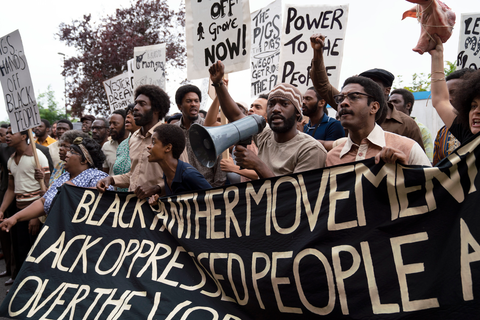
Three of the films concern key political, cultural and societal events that affected the West Indian communities in Britain in the late 20th century. ‘Mangrove’ is about a tiny restaurant in Notting Hill that became a celebrated focal point for the West Indian community in the Seventies, before becoming the focus of unwarranted police attention and ultimately, the subject of one of the most important court cases in British legal history. Coming-of-age love story ‘Lovers Rock’ follows a 15-year-old girl as she sneaks out of her family home to attend a blues party in west London. ‘Education‘ is about a boy who is abruptly placed in a school for the “educationally sub-normal”, prompting his mother to investigate the deep-seated cultural bias against Afro-Caribbean children in Britain, and to work tirelessly for a solution.
Two of the films are inspired more directly by real-life individuals. ‘Alex Wheatle’ is based on the experiences of the Guardian Children’s Fiction Prize-winning author, who spent his early life in the notorious Shirley Oaks children’s home in south London and, later, a spell in prison, where he had a transformative reconnection with his Afro-Caribbean heritage. ‘Red, White and Blue’ is about Leroy Logan, played by John Boyega, a British police officer in the Eighties whose choice of career put him at odds with his Jamaican father, and led them both on devastating journeys of discovery.
The original plan had been for six hour-long TV dramas, but once McQueen got started he realised his subjects deserved more. “These to me were stories that needed to be told. Stories that shaped the landscape of Britain. That’s how big these stories were. The fire was in me to tell them, and as a film-maker, as an artist, without that fuel called passion, at least for me, there’s no reason to do anything.”
McQueen describes the period covered by Small Axe as “a golden age of resistance”. “All Saints Road [in Notting Hill] was the frontline. When things were being printed in the papers, I remember walking to school with a bit of fear, because everyone, everything around us, was against us, and now, 40 years later, everyone understands [that the march that led to the trial dramatised in ‘Mangrove’] was an uprising, and that it wasn’t a riot. People now understand that we do not have the best police force in the world. It took a while, a number of deaths, sacrifices, people dying, thinking we would never get to this place, but we’re here.”
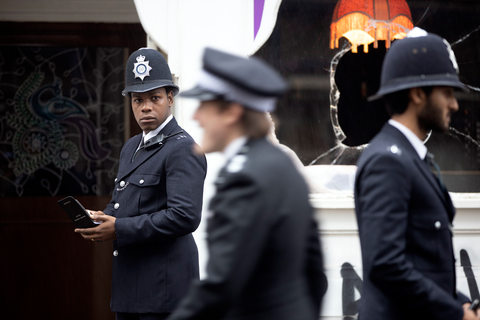
John Boyega as police officer Leroy Logan in “Red, White and Blue”PAUL CALVER
Small Axe comes after several years of feverish productivity for McQueen. When our drinks arrive, we toast the anthology’s imminent release, and he congratulates me on the recent publication of my novel, Rainbow Milk. “I can actually drink this without feeling guilty,” he says, taking a first sip of bubbles. “Two Black people having fun! Haha! What have we done to deserve this?”
Two of the films in Small Axe — ‘Education’ and ‘Lovers Rock’— are based, “to an extent”, on events from McQueen’s own past. In ‘Education’, Kingsley, an intelligent eight-year-old boy of Afro-Caribbean heritage, is ejected from the mainstream system after failing discriminatory “IQ tests”. The Grenadian revolutionary Bernard Coard’s 1971 pamphlet, ‘How the West Indian Child is Made Educationally Subnormal in the British School System: the Scandal of the Black Child in Schools in Britain’, made it clear that the children of Afro-Caribbean immigrants were being disproportionately targeted for this treatment. As part of the resistance, the National Association of Black Supplementary Schools — which continues to this day, run by community leaders, to help Black children of all abilities with their schoolwork as well as teach them about their heritage — was initiated.
McQueen, who was born in west London in 1969 to Grenadian parents, lived with undiagnosed dyslexia at school, and remembers “sitting at the front of the class with a lazy eye and a patch over it, unable to see the chalk board at all.” It meant, he says, that he “walked into racial discrimination. They assumed I wasn’t capable academically. When I went back to my old school to hand out awards, the headmaster told me that back when I was there the school was institutionally racist. They admitted it, but I didn’t need their confirmation. People were excluded, they were ostracised, graded down, not given a chance. Because of who they were. That’s where it started. It started at school. It was not a happy experience. And, unfortunately, that narrative continues for a lot of Black people. It’s horrific to be confronted with institutional racism from day one.”
He himself was a beneficiary of supplementary schools in Acton and Hammersmith (reluctantly, he admits, because it meant he had to miss Football Focus on Saturday mornings), and he found other ways to get what he needed from his education. “I had such a passion for art, and in a way it made me feel how I could transcend and transform — and I had to put all my faith in that — but I could always draw. I was curious.” He ended up studying fine art at Goldsmiths College where he found his principal medium, film.
In Paris in 2007, I visited the Pompidou, where I was irresistibly drawn to a black-and-white silent film of a Black man, standing still and expressionless, while the clapboard façade of the house behind him collapsed repeatedly, from different angles, over his head. Each time, I expected him to be crushed; as a Black man watching, I expected to be, but he
was standing exactly where the empty door frame would fall, so he was saved, perpetually, even while the façade slammed almost audibly onto the ground with a puff of dust. How many chances would we get before we were crushed anyway?
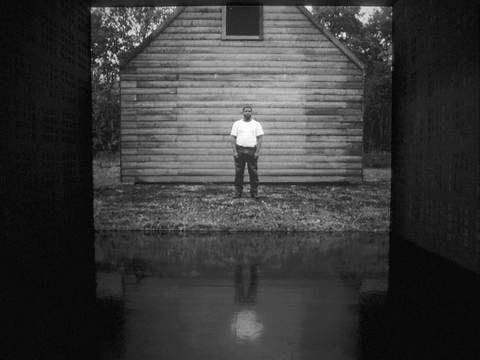
Steve McQueen’s ‘Deadpan (Pince Sans Rire) 1997’, a silent film that pays homage to Buster Keaton, won the Turner Prize in 1999
This was McQueen’s film Deadpan (Pince Sans Rire) 1997, one of his major early works, and formerly part of the show at London’s ICA for which he was awarded the Turner Prize. Since then, his films have often featured Black men in hostile environments: Western Deep 2002 — which was exhibited at his recent Tate Modern show — observes a group of men as they descend two miles underground into one of the world’s deepest goldmines, just outside Johannesburg, where temperatures can reach over 60°C. The men are mostly immigrant labourers from neighbouring African countries, whose livelihoods depend on them passing gruelling physical tests in controlled conditions, stepping up and down from a slippery concrete slab while lights and buzzers go off around them and thermometers are shoved in their mouths. In almost all of McQueen’s work, someone’s endurance is being tested: that of the subject, as in Western Deep, the audience, as in Deadpan, or both, as in 12 Years a Slave.
Which is one of the reasons I can’t wait to ask him about ‘Lovers Rock’, the second of the loosely personal films from Small Axe. Set at a blues party in west London circa 1979, we watch as a sound system moves its equipment into a West Indian house, and young people pay a nominal fee to enter for the night.
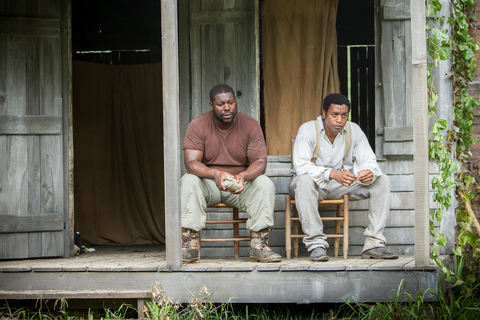
McQueen alongside lead actor Chiwetel Ejiofor on the set of 12 Years a Slave ENTERTAINMENT PICTURES / ALAMY STOCK PHOTO
“Those blues parties were there because people couldn’t get into clubs,” says McQueen. “There was a quota. So people made their own sound systems and had a blues. They took the furniture out of the house to make the club. It was beautiful. Wonderful.”
Lovers Rock was co-written with the British novelist Courttia Newland, whose “brother used to hold blues in their house, so Courttia, physically, as a child — he’s younger than me — used to be there.” McQueen’s inspiration was also familial and, to those of us of Afro-Caribbean heritage, familiar. Everything you look at is unshowily on-point: the dresses young women wear; their natural up-dos and subtle make-up; the condensation running down the textured wall-paper; the itchy, cold nylon bedspreads all Afro-Caribbean parents or grandparents had. “I just wanted to make a film about my aunt,” McQueen says, innocently. “My uncle used to leave the back door open for my aunt to go to the blues. She’d come back the next morning and have to go to church.”
“It’s freedom,” he says, of the teenage and twenty something second-generation children depicted in the film. There are balanced shades of fervour and restraint in his voice. “It’s their church, where they can be totally and absolutely themselves and understood, appreciated, loved.” In conflating a blues with a church service, he reminds me of James Baldwin, who, in his final novel, Just Above My Head — which McQueen named a 1996 self-portrait after — wrote that there are two types of Black music: “Saturday night and Sunday morning”.
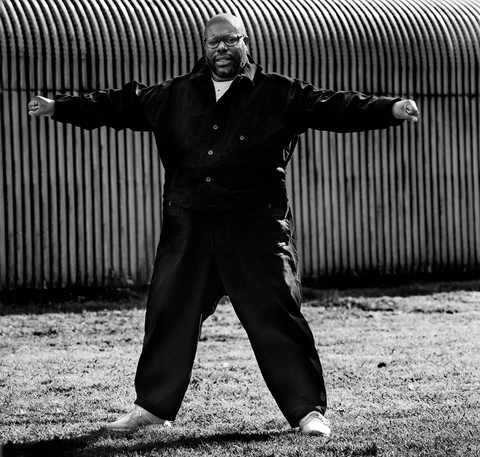
Black gabardine jumpsuit, £2,870, by Yohji Yamamoto. White cotton T-shirt, £115, by Craig Green. White leather trainers, McQueen’s own
One of my favourite scenes in ‘Lovers Rock’ features the anthemic “Silly Games”, a UK Number Two hit for Janet Kay in July 1979. We are in the room for the whole song, from start to finish, watching hands interlock, hips grind, bums wind, then when the music stops, the crowd sings the whole song again in full, a cappella. Where once we were forced to watch the unforgettable, dreadful whipping of Lupita Nyong’o’s Patsey or the failed lynching of Chiwetel Ejiofor’s Solomon Northup in 12 Years a Slave — “I wanted people to see the evidence of these lynchings, for people to see how other slaves had to normalise terror in order to survive, what that does to the psyche, and what it does to generations and generations of people after the fact,” he says— now we are allowed to indulge our eyes in pure elation.
The beauty of McQueen’s film-making is in its atypical perspective and clarity of vision; the tension you feel waiting for something awful to happen — the inevitable deterioration of Bobby Sands, played by Michael Fassbender, in Hunger (2008), or the escalating torment of a sex addict, Fassbender again, in Shame (2011) — heightens the experience. After the year Black people in the UK and US in particular have had, with socio-economic and socio-environmental inequalities demonstrated in real time by disproportionate Covid-19 death rates, and with the public lynching of George Floyd imprinted on our retinas forever, this vision of blackness immersed in joy, rather than anger, in ‘Lovers Rock’, is a salve.
“Joy! Absolutely,” agrees McQueen. “If anything, I think that was the experience. Yes, trials and tribulations. But at the end of the day we have to thrive to survive. It’s always been about joy.”
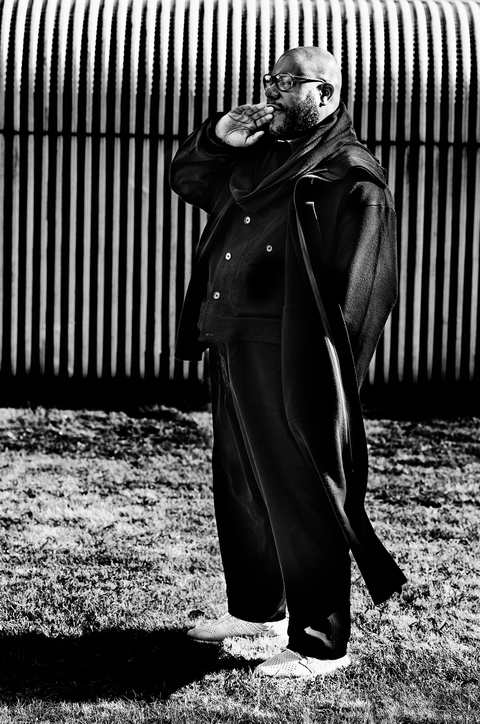
Small Axe was filmed last year and cannot be said to have predicted, or have been made in response to, the surge in support for Black Lives Matter in response to the deaths of George Floyd, Breonna Taylor and so many others. These events have not affected his work; McQueen says he has “always been on the same track”. Moreover, the new films are specifically about British, Afro-Caribbean radicals responding to persecution here. Our heroes, often regular working-class people going about their days trying to survive and raise their families, have been less eulogised and celebrated than their American counterparts, which is what makes these films so important and timely. I ask why it has taken so long for the story to be told; there is a sad, almost mournful truth to McQueen’s response.
“There’s a generation, maybe even two generations of actors, directors, producers, executive producers, editors, cinematographers et cetera, that never materialised because of the environment,” he says, of a British film industry he has recently, in an opinion piece for the Guardian, accused of being far behind the US in terms of representation.“We’re talking about two generations of talent that never got an opportunity. The possibility was not there. The landscape was not welcoming or embracing those stories. Didn’t want to know. There’s a gap in our history, of representation of Black people on film. Maybe in some ways I suppose I was trying to fix that. To put that narrative down. These stories needed to be told, and I had the agency to tell them. There aren’t a lot of people like me hanging around making films or doing whatever. I’m the exception, unfortunately.”
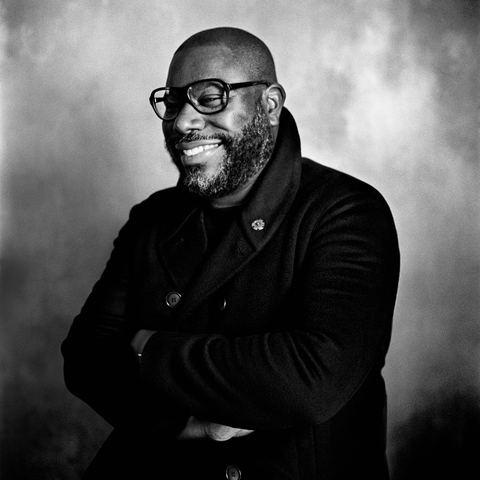
Black double cashmere double-breasted coat, £3,500; black cotton T-shirt, £630, both by Giorgio Armani
Already, Small Axe is making its presence felt in critical circles. ‘Lovers Rock’ opened the 58th New York Film Festival in September, while ‘Mangrove’ will receive its European premiere when it opens the London Film Festival in October. At the time of writing, McQueen was still editing ‘Alex Wheatle’ and ‘Red, White and Blue’, but the three films I was able to watch could not have felt more resonant with the times in which we live now. As far as societal progress should be judged, it is damning.
“These stories are as relevant now as they were then,” says McQueen. “It’s only now that people are waking up to the fact that there’s been injustices against Black people for decades in this country, and centuries elsewhere. It took a pandemic. It took a brutal killing. It took millions marching. For people to think, ‘Possibly I should think in a different way.’ And only possibly, it’s not actually done yet. Millions of people on the street before change can even be considered, before people can think that even possibly something could be wrong! The world is not a healthy place. If you really want change, if you are really serious about it then, hey, it starts from the beginning. Education.”
Does he feel any optimism that change can be realised?
“I feel hope because young people now are willing to speak out. And it’s been very moving. John Boyega speaking out in Hyde Park. It’s very healthy, very cathartic. And I’d add to that the #MeToo movement as well. Can this moment be capitalised on? It’s an interesting moment, but we’ll see what happens.”
At some point, it got dark, though the heat and humidity remain. We have finished our meals and are the only diners left in the garden. The waitress has started putting up chairs and taking in cushions. We ask for the bill but are told there is no rush. So we don’t. Perhaps, after decades in which he has produced, with striking urgency, work that has challenged, educated, disturbed and mesmerised, in which he has filled galleries and screens with stories and histories long overdue, Steve McQueen is, just for a moment, happy to take his time.
Small Axe starts on BBC One this November




